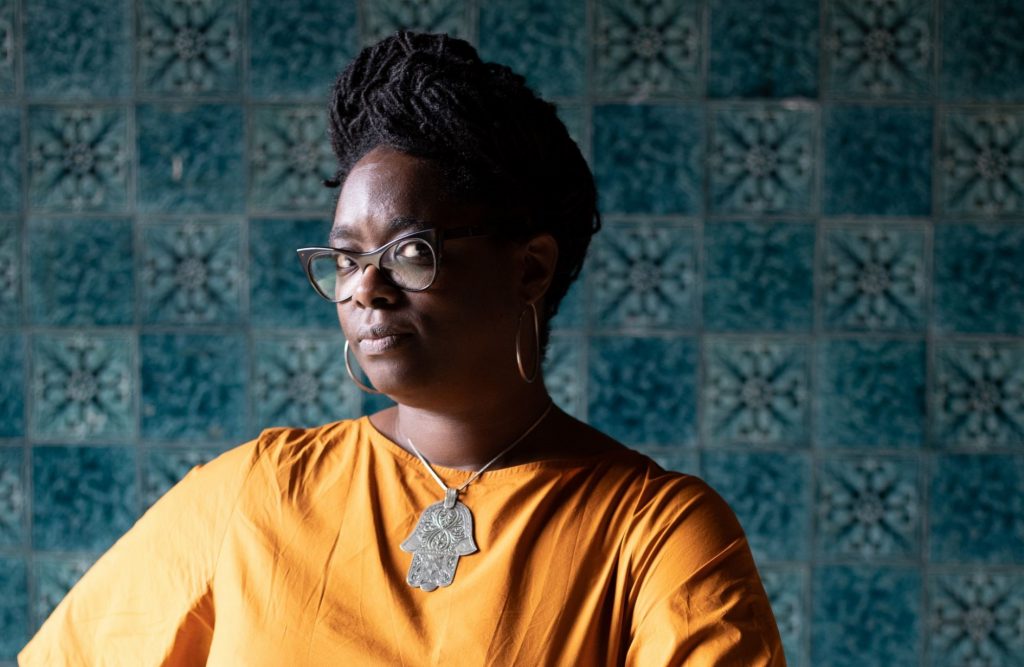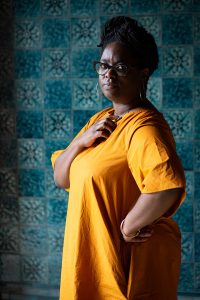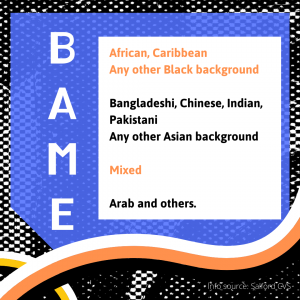
An exhibition at The Lowry celebrating Black History Month has now been launched online since it was cancelled due to Covid-19.
‘Still I Rise’ is a portrait series of BAME (Black, Asian and minority ethnic) leaders from a range of backgrounds that work or live in Salford.
The idea for the exhibition came from Salford’s BAME Mental Health Champions, a group of volunteers representing people in their communities – including African, Yemeni and Chinese – who work with NHS Salford Clinical Commissioning Group to act as links to mental health services in Salford.
Salford’s Equality Partnership helped produce the images with photographer Allie Crewe, a Northwest-based photographer, University of Salford graduate and one of the winners of this year’s Portrait of Britain 2019 award
Allie said: “I seem compelled to challenge social injustice it is not enough for me to observe I need to do something.

“I grew up with a lot of domestic violence. That’s largely a gendered crime so most of my work is about dismantling patriarchy and giving a voice to groups who are in the fringes of society.”
‘Still I Rise’ was co-produced by Salford’s BAME Mental Health Champions.
Also, the participants were invited to write stories and poems to accompany their portraits.
This month the photographs where combined into a video by another artist Rob Reed, which can be seen in the video below:
Allie said: “if I am commissioned to shoot portrait series it’s got to be about authenticity. I want to tell real stories and want to license people like the ones in BAME communities in Salford too to speak their truth.”
When asked about what impact she thinks the series ‘Still I Rise’ creates in BAME people she added: “I don’t know and I don’t want to be responsible for that voice because I am a white woman.
“I would stress the collaboration, not just in asking people to write a story. Also, I am collaborating in the representations that I create. I think that’s where my job ends.”
Tara Leach, Head of Race Equality Charter at Salford University, was one of the participants of Still I Rise.
Tara said: “I thought it was good cause highlighting really great work that’s taking place in the Salford community.

“You can’t be it if you don’t see it.”
Tara explained that an important impact of this work is in the children and young people of Salford who feel isolated because of discrimination or racism.
She thinks the portraits can provide leadership role-models.
Tara explained the title of the exhibition resulted from a conversation between her, Allie and other participants.
It was inspired by the work of Maya Angelo, a renowned Afro- American poet, storyteller and activist author of the book And Still I Rise.
About the meaning of Black History Month Tara said: “I’d like it to get to a place where we don’t need a Black History Month, but unfortunately we’re not there just yet.
“Mainstream history has got a lot of gaps in it.
“Black History Month, it’s an opportunity to complete the story and tell the proper story.”

This summer worldwide protests for the Black Lives Matter movement occurred.
In Manchester thousands of people gathered to demand justice and human rights.
The governmental term BAME has been the cause of discussion and polemic.
Tara said: “It’s problematic. It’s very conflicting, so you’re taking a very large, very diverse group of people who are very different and come from different races and backgrounds and you’re smashing them into one four-letter acronym.
“I think we need to be careful when we’re using it. It can hide a lot of things”.

Janete Seide Ungara is an anti-trafficking caseworker and Salford resident who was one of the first people to view the online exhibition.
Janete said: “I really liked it. It was nice to see people of BAME backgrounds holding different positions from the ones we are used to seeing.
“[Representation] is very important because BAME people tend to have a lot of obstacles and seeing people that look like you with similar stories as you being in leading positions makes you feel that you can do it as well.”















Recent Comments